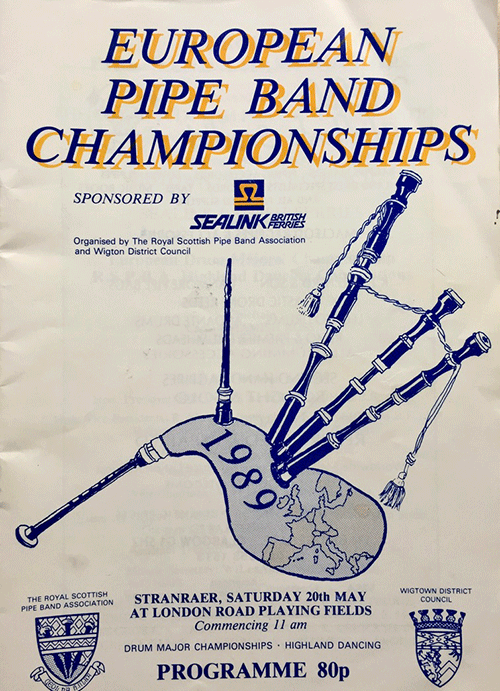
I had this message from Ken Stewart, Northern Ireland, the other day: ‘I just stumbled on an old programme of the European Championships in Stranraer 1989. There were 24 bands playing in Grade 1 and 34 in Grade 2. It is startling just how many of these bands are on longer operational.’
Indeed it is Ken. There is a decline and it is creeping up on us. And don’t use the convenient excuse of covid. Pipe bands are on a downwards slope.
By The Editor
One issue is size. Giant bands of 14 side drummers (14 I ask you!) and 20 plus pipers. It is just ridiculous. They are starving out of existence bands in all grades. You could create two from one.
Yes, there will be other reasons, but who can deny that these monster bands are having a detrimental effect?
Something needs to change and the push for change will not come from the FMMs and the Inverarays. They are winning. They like the feeling of striding up to the line like some frontline force ready to do battle, mega-handed. No one can blame them. Their job is to win not to change rules.
So the initiative to restrict band sizes has to come from Washington Street. Before going any further, I would like every RSPBA director to have a look at the pages from the 1989 programme Ken has supplied. Scroll through it and be concerned – very concerned:
You have it your power to sort this. Issue a limit on piper and snare numbers in any one band. Twenty and ten is plenty.
The knock on effect of such ruling? Join SLOT or FMM or Fife Police and find you are not getting a game, well you’re not going to hang around for long are you? Some other band will very quickly have the benefit of your services.
And if you were vying for a slot in any of these bands then you are a pretty good player. Your presence in your new band is going lift everyone and power it on.
Now dear director, have a close look at the programme pages for Grade 1 in 1989. Again they will tell you all you need to know:
Directors, you need to be tough. The RSPBA is run for the bands but sometimes they do not know what is good for them. Look at this issue and address it.
The Association’s prime responsibility is for the welfare of the pipe band movement. It has to have a view of the bigger picture – and the bigger picture here is not edifying.
Yes, any cull will be difficult, but bear in mind the need to ensure that there are still enough bands out there to make running a championship worthwhile in the years ahead. The reduction in band numbers in the last 30 odd years is frightening. If that decline continues at that rate? Well you don’t need me to say the rest.
-
 Bagpipes – DN4A – High Quality Set in Plain SilverPrice range: £200.00 through £2,052.00
Bagpipes – DN4A – High Quality Set in Plain SilverPrice range: £200.00 through £2,052.00 -
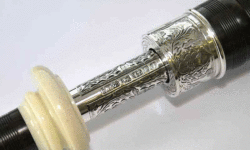 Bagpipes – DN5 – The Finest Bagpipe AvailablePrice range: £300.00 through £3,424.00
Bagpipes – DN5 – The Finest Bagpipe AvailablePrice range: £300.00 through £3,424.00 -
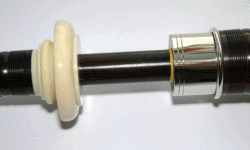 Bagpipes – DN1, High Quality InstrumentPrice range: £100.00 through £1,250.00
Bagpipes – DN1, High Quality InstrumentPrice range: £100.00 through £1,250.00










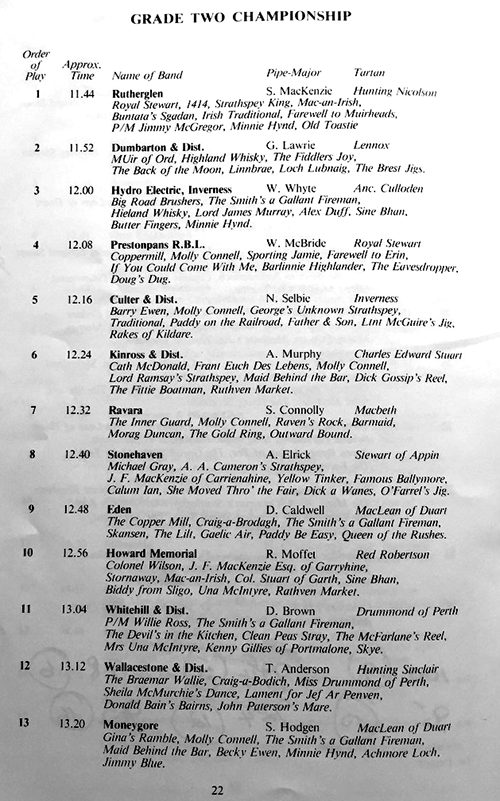
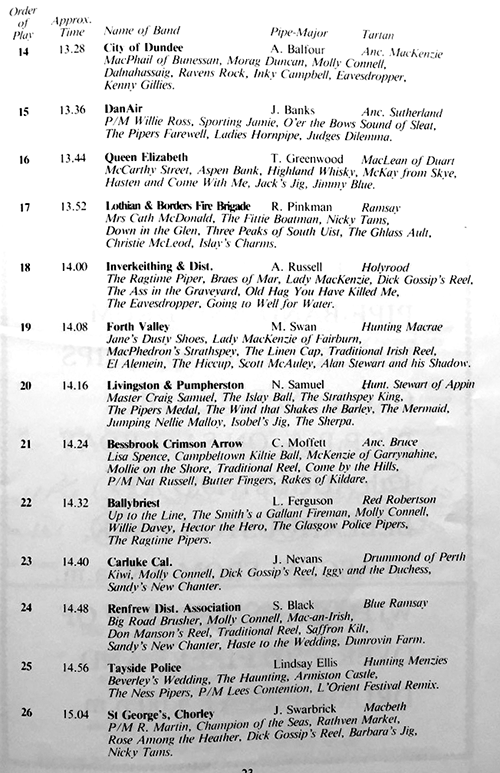
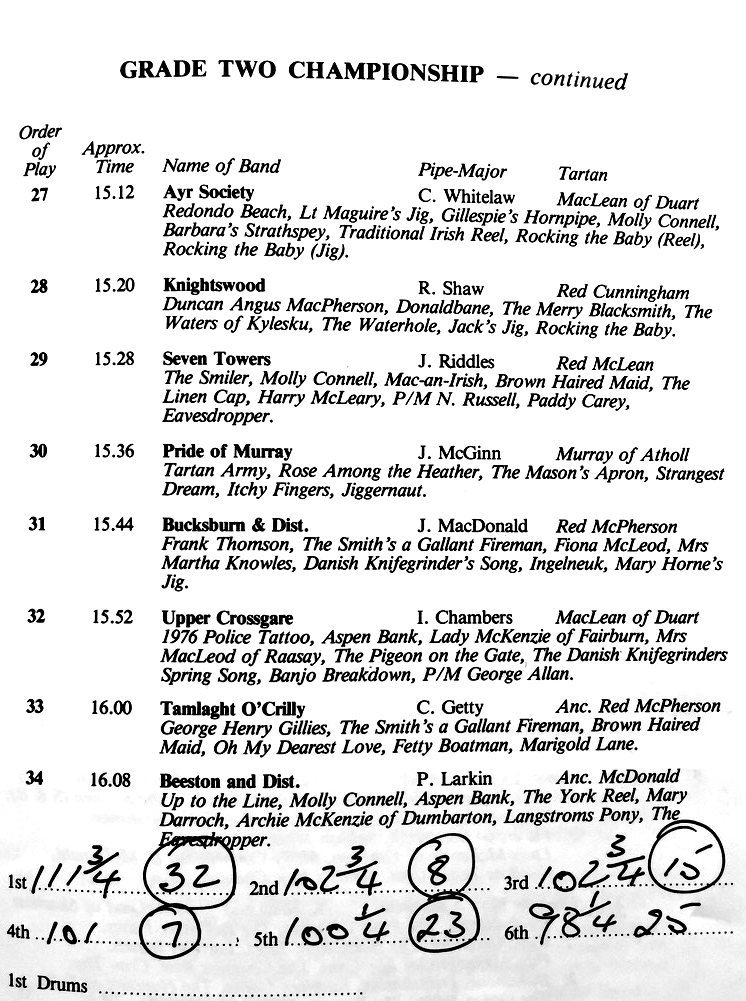
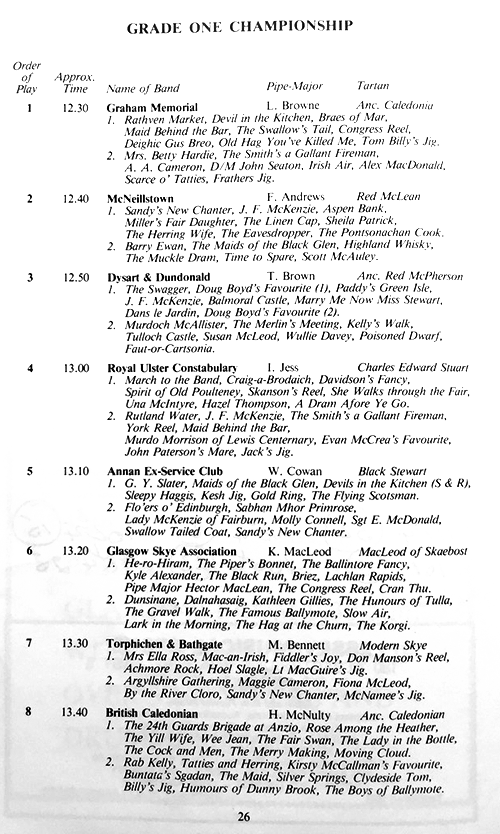
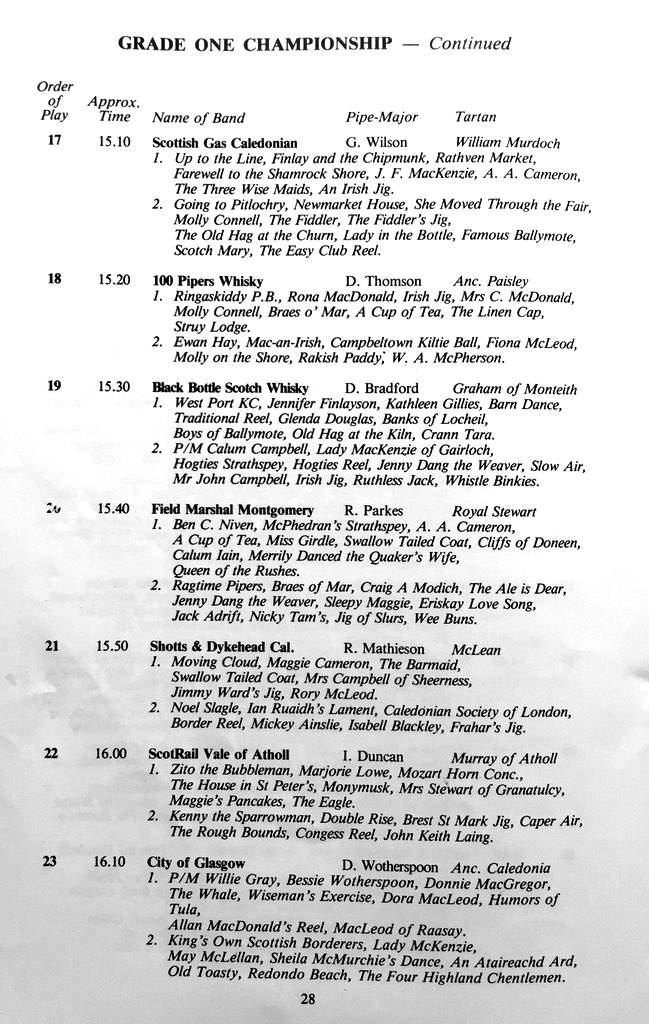
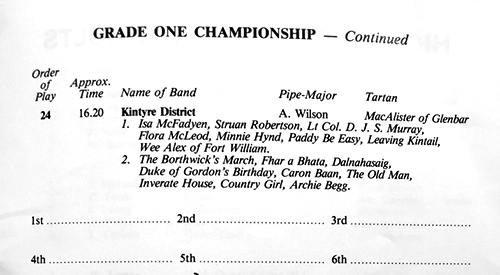





Interesting idea! However this is probably a micro issue and a much broader issue should be addressed, i.e., the future growth of piping bands. Just looking at US,, the number of grade 1 and grade 2 bands is pathetic. Lack of funding is the main cause. Piping band are volunteers based and band members have to pay from their own pockets for traveling and competitions. RSPBA and other piping associations can do more to help the bands! or at least proactively discuss and address the funding issues. If we simply leave “market” to figure it out as one reader suggested, I am afraid the future of piping bands is not that bright.
This is 100% on the money for instance Victoria police won the world’s in 1998 with 16 pipers all of a sudden by 2005 grade 1 had went to well over 20 piper’s.my opinion is that grade one should have a cap of 18 pipes 8 snares grade two 16 pipes and 7 snares,that is bound to have a huge effect with bringing more bands back out on the grass and surely everyone would want that!
‘Change doesn’t wait for anyone, it has already moved on’………..
It has been wonderful for the spectator to listen to the ‘Big Bands’ of Grade 1, in particular, but the harsh reality is glaring us straight in the face with the demise of band numbers in all Grades. In this regard I agree whole-heartedly with the comment from Ken Stewart. One wonders how many potential leaders have been drawn toward the glamour of the jumbo sized bands in the past two decades alone. It is my considered opinion that Lower grade bands have too often found it impossible to hold those higher skilled members who potentially are the leaders they sorely need in order to progress.
BUT there’s more………
*A lack of emphasis on band management training
*In Northern Ireland a failure to establish a Grade for Juveniles
*Insufficient focus, again in NI at least, on the Education of children and Young people
*Too many bands have not supported the RSPBA -Qualification System
*The need to challenge the societal trend of ‘ I’m alright Jack, sod you.
WE THE BANDS NEED TO CHANGE OUR STRATEGY and ensure that the Decision- Makers have fully taken on board these and other issues which are threatening the very existence of our need for an Association and worse our hobby.
“We must become the change we want to see” – Mahatma Gandhi
The assertion that pipe bands are declining in quantity is not proved by the data provided. Assuming it’s true l, however, this solution addresses a symptom, not the disease. The solution to fewer bands is more players. It is incumbent upon players to make more players. Go out and teach, rather than wax nostalgic for the small bands of old. Moreover, bands fail because of small time politics and ego, who is anyone kidding there?
Very interesting article, I played with Torphichen then in G1, the bands went through a lot of changes in personnel and leadership mainly due to it close neighbours Boghall having so much success, everyone wanted to play with them and who can blame them? It would be good to see some of these bands resurrected utilising the talent in the top G1 bands and ultimately becoming a feeder band for them but at least it will bring new players through.
Interestingly now in West Lothian, there is only 1 competing senior band now namely Boghall, no Torphichen, no polkemmet, no pumpherston, no Linlithgow, Bo’ness etc, sad days
I am not sure that I agree with the assertions made by your correspondent:
1 We have fewer bands than before. in fact, the total number of bands at the European Championships has not varied significantly over time; albeit with a modest, and potentially temporary for all we know, reduction due to COVID
2 More bands are somehow “better” than fewer bands. In what way? Should we not be focusing on quality rather than on quantity?
3. Smaller top-level bands will transfer players to lower-grade bands. Is there any real evidence for this? In my view – and in my personal experience – these players are more likely to become spectators.
4 The RSPBA is somehow responsible for setting rules about the maximum size of bands and should use that power to limit the size of bands. Are we really to believe that the administrators have a better view of how bands should be structured to deliver the maximum impact than the leading Pipe Majors of the day? I think not.
The truth is that bands come and go. Despite that, we are privileged today to have a cadre of Grade 1 bands that are probably the best in terms of technique and musical content that we have ever seen.
So I am not persuaded that manipulating maximum sizes for bands makes much sense. Let the “market” figure it out!
Either big bands produce better music or they do not. If they do not, then it is up to judges to punish that. If they do, I do not understand how forcing bands to be worse will benefit anyone.
As for the idea that bandsmen will “trickle down”, I don’t believe it for a second. No-one who has played under a high level band leader will enjoy playing for a second choice band. All a numbers cap will do is drive good pipers and drummers out of the scene altogether.
I say compete “Like for Like,” as with any other competitive endeavour. Team sports make an excellent parallel,
where unbalanced sides could never be tolerated.
I agree with Alan. There should be a level playing field. Big bands could split in two under the same name A & B. Component levels determined by RSPBA
What precisely is meant by “level playing field”?
Talent, effort, numbers or what?